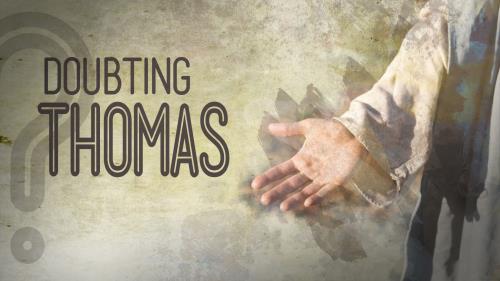-
Delivered And Destroyed Series
Contributed by Rev. Dr. Andrew B Natarajan on Sep 4, 2023 (message contributor)
Summary: The life in Christ is a gift from the Lord. We need to safeguard with the help of the Holy Spirit. The rebellion, disobedient and unbelief would result in destruction. The merciful God would also punish for the wickedness of His people.
Delivered and destroyed
Jude 1:5 “Though you already know all this, I want to remind you that the Lord at one time delivered his people out of Egypt, but later destroyed those who did not believe.” (NIV).
Main Content of the Epistle:
This is the beginning of the main body of the Epistle Jude had intended to write general matters concerning faith, but when he heard of the evil activities of false teachers, he changed his mind. He encouraged the Christians to hold firmly to the truth they first heard and to fight against those who want to destroy it, and he assures the punishment for such preachers by citing a few examples.
So, Jude chose three Old Testament events to prove his teachings on Judgement. 1) Israel's rebellion after liberation (Exodus 18:10, Numbers 14:26-35), 2) The ancient angels who sinned (Genesis 6:1-4), and 3) The gross immorality of Sodom and Gomorrah (Genesis 19:12-25). The order of the three examples of punishment is not chronological but to remind grave punishment. Actually, it was the impure angels, flood, Sodom, and Gomorrah (2 Peter). The Lord goes by the quality and not the quantity.
Liberated Israel:
The Lord rescued the descendants of Abraham as per his promise after 430 years of slavery in Egypt. The intention and the desire of God was to bring them into a land that He had promised to their father Abraham. He wanted to bring them into a rich land that they could call their own, that they could possess as their own, build their own houses, plant their own vineyards, and eat of the fruit of their own labor. God's intention was to bring them into the land that was well-watered, flowing with milk and honey (Smith).
But they were accompanied by many non-Israelites, and unbelievers in Yahweh and his promises (Exodus 12:37–38). They rebelled against God and godly man (Numbers 11:4). They were dissatisfied with the provision of manna. They expressed their regret for leaving Egypt and desired to return to it. Their nature was kept sinning (Psalm 78:32), rejecting the Lord's command, provoking Him, and resulting in death (Numbers 14; Hebrews 3:16–19). God led Israel toward the Promised Land. But most of them did not trust the Lord till the end. So, God sentenced the adults of that generation (except Joshua and Caleb) to wander in the wilderness until they died (Numbers 14).
Lessons:
Jude’s introductory words were polite but now turn into harsh and strong. The mere fact of being rescued did not prevent destruction. The fact is that persons delivered from sin can’t escape the punishment for their wicked lives even if they profess the doctrine and show as the followers of God (Barnes).
Because God is holy and expects obedience and trust without doubt. So, after having been called by God, we ought not to glory carelessly in his grace, but on the contrary, to walk watchfully in his fear. Those whom God had honored with the greatest blessings, whom he had extolled to the same degree of honor as we enjoy to this day, he afterward severely punished for not walking worthy of their liberation (Calvin).
Jude taught that "The goodness of God will not hinder him from punishing the wicked under the new dispensation, any more than it hindered him from punishing them under the old." (Coffman).
God in His love wants to bring us into a glorious life of fellowship and relationship with Him. But unbelief can rob us of the things that God desired to do for us! (Smith).
God let that generation die rather than bringing the unbelieving apostates into the Promised Land (Dr. Constable).
The evil men who are corrupting the church never regard themselves as enemies of the church and of Christianity; they regard themselves as advanced thinkers, greater than the ordinary followers of Christ, and others call them the spiritual elite. Jude makes it clear that even if a man has received the greatest privileges, he may still fall away into disaster (William Barclay).
John Wesley warned, "Let, therefore, none presume on past mercies, as if they were out of danger."
(Ref: knowing-jesus.com; Biblehub.com; commentaries from Study light)

 Sermon Central
Sermon Central



